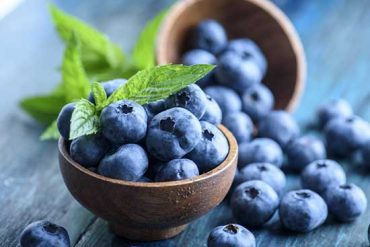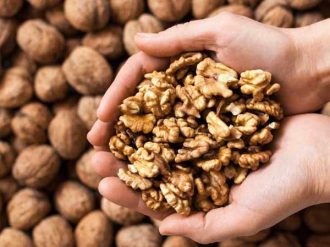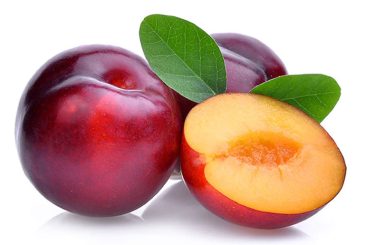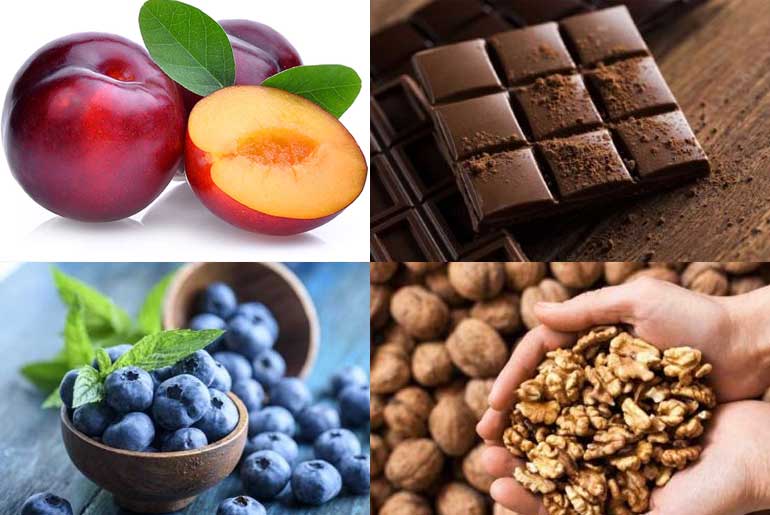The importance of antioxidants in promoting the health of various organs, ranging from the eyes and brain to the heart and skin. Antioxidants play a vital role in safeguarding the body against the harmful effects of free radicals, thereby potentially reducing the risk of specific diseases such as cardiovascular diseases, certain cancers, and chronic conditions linked to oxidative stress. These beneficial compounds are abundant in a diverse range of foods, with fruits and vegetables standing out as notable sources.
Dark Chocolate:

Dark chocolate contains compounds that protect against the oxidation of LDL, reducing the risk of heart disease. It also provides essential minerals like iron, copper, magnesium, and manganese, contributing to healthy blood cells, immune system enhancement, and maintaining healthy bones. The antioxidants in cocoa and dark chocolate have been linked to health benefits, including decreased inflammation and reduced risk factors for heart disease.
Blueberries:

Rich in potassium and vitamin C, blueberries help reduce the risk of heart disease and cancer while possessing anti-inflammatory properties. Despite being low in calories, blueberries are packed with nutrients and antioxidants. They are associated with potential benefits for delaying age-related decline in brain function due to their antioxidant content, particularly anthocyanins.
Walnuts:

Walnuts, rich in fiber, protein, and unsaturated fats, are an excellent snack choice. In traditional Chinese medicine, walnuts have been used to promote brain health, contributing to the maintenance of healthy brain cells and potentially enhancing memory. The polyphenol content in walnuts collaborates with antioxidants to combat oxidative stress, aiding in inflammation reduction, weight management, and disease prevention.
Plums:

Plums are an excellent source of antioxidants, and their phytochemicals and nutrients help reduce inflammation, a key factor in triggering heart disease. Similar to prunes, plums contribute to maintaining digestive regularity due to their high sorbitol content, acting as a natural laxative and facilitating smooth movement through the digestive system.
Disclaimer:
The information contained in this article is for educational and informational purposes only and is not intended as a health advice. We would ask you to consult a qualified professional or medical expert to gain additional knowledge before you choose to consume any product or perform any exercise.








